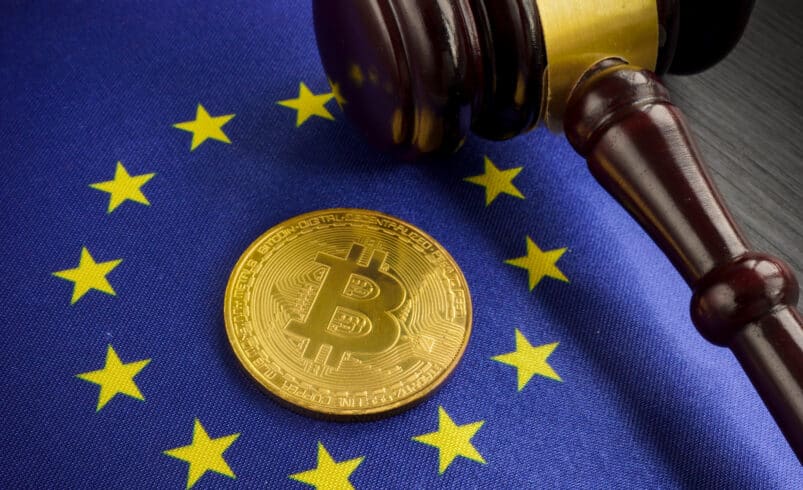EU Implements Tighter Crypto Laws to Curb Money Laundering Risks

Key Insights:
- New EU legislation mandates rigorous due diligence for all crypto transactions to prevent money laundering and enhance security.
- AMLA to oversee crypto compliance in Frankfurt; measures include KYC requirements and suspicious activity reporting by crypto asset managers.
- The EU’s regulatory framework limits large cash transactions and requires identity verification for transfers from self-custody wallets to platforms.
The European Parliament recently passed new legislation aimed at enhancing the oversight of cryptocurrency transactions to prevent money laundering activities. This development comes as part of a broader initiative under the Markets in Crypto-Assets (MiCA) regulation, which impacts various crypto-asset service providers (CASPs), including centralized exchanges and gambling services.
Detailed Due Diligence Requirements Established
Under the new regulations, crypto companies are required to implement rigorous due diligence measures and identity checks. These mandates extend beyond centralized platforms to include crypto asset managers, who must now also report any suspicious activities to the authorities. The aim is to provide a more structured and secure framework for monitoring transactions in the digital asset environment, thereby reducing the potential for illegal activities.
The Authority for Anti-Money Laundering and Countering the Financing of Terrorism (AMLA) has been designated to oversee the implementation of these rules. AMLA will operate from Frankfurt, Germany, adding a layer of regulatory oversight to the European Union’s efforts to curb financial crimes facilitated through digital assets.
Implementation Timeline and Industry Reactions
The legislation, which the European Parliament approved on April 24, will undergo further adoption processes by the Council of the European Union. It is expected to become fully enforceable three years post-approval, giving CASPs ample time to adapt to the new requirements. These include standard Know Your Customer (KYC) and Anti-Money Laundering (AML) procedures, which are already in place but will be enforced with greater scrutiny under the new rules.
Patrick Hansen, the EU strategy and policy director at Circle, shared his perspective via a social media post on X, noting that the crypto sector views the final version of the legislation as a positive development. He pointed out that earlier, more stringent proposals could have imposed severe limitations on self-custody wallets, but thanks to industry advocacy, a more balanced approach was adopted. The regulation now includes provisions that scrap a previously suggested limit on cryptocurrency payments from self-hosted wallets, which had been set at 1,000 euros.
Regulatory Impact on Financial Transactions
The new laws also address larger financial transactions, limiting cash payments to 10,000 euros, with member states possessing the authority to impose even stricter limits. Anonymous cash payments exceeding 3,000 euros have been banned under these regulations, aiming to trace and prevent large-scale illicit financial flows effectively.
Furthermore, CASPs are mandated to apply mitigating measures for transfers between their platforms and self-custody wallets, ensuring that the identities of parties in such transactions are verified. This measure is designed to enhance the traceability of funds and reduce the anonymity that has traditionally been associated with crypto transactions.
The crypto community’s response to these regulations has been mixed. While some stakeholders recognize the necessity of such measures to prevent money laundering, others express concerns about potential restrictions on privacy and economic activity. For instance, Daniel “Loddi” Tröster, host of the Sound Money Bitcoin Podcast, pointed out the practical challenges and broader consequences these new regulations might impose on cryptocurrency usage within the EU.
These legislative changes mark a significant step by the European Union in its ongoing efforts to regulate the burgeoning crypto market and curb the risks associated with money laundering and terrorism financing in the digital age.
DISCLAIMER: It's essential to understand that the articles on this site are not meant to serve as, nor should it be construed as, advice in legal, tax, investment, financial, or any other professional context. You should only invest an amount that you are prepared to lose, and it's advisable to consult with an independent financial expert if you're uncertain. To obtain more information, kindly examine the terms of service and the assistance and support resources made available by the issuing or advertising entity. Our website is committed to delivering accurate and unbiased news, yet it's important to note that market conditions may change rapidly. Also, be aware that some (but not all) articles on our site are compensated or sponsored.








